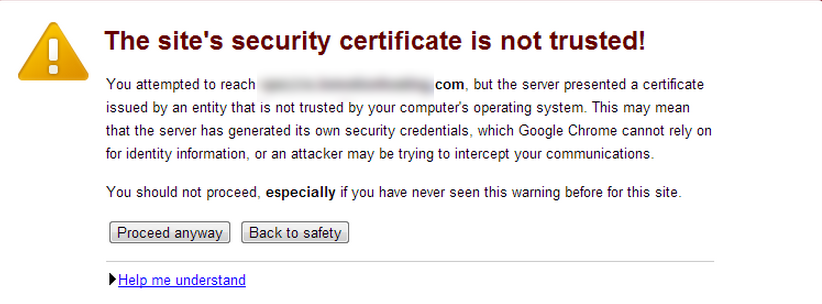A self-signed SSL certificate does not use the chain of trust used by other SSL certificates and is most often used to perform internal testing without the effort of acquiring a standard SSL certificate.
Definition
Standard SSL certificates are issued and verified by a trusted Certificate Authority (CA). They are required to operate websites using the HTTPS protocol favored by most reputable eCommerce retailers. Such certificates employ a chain of trust, in which each certificate is signed and trusted by a more credible certificate. This chain extends all the way up to root-certificates, which can only be provided by a finite selection of Root CAs such as Comodo, GeoTrust, Verisign, and others.
Self-signed SSL certificates avoid this chain of trust as they are signed by the entity requesting the certificate rather than a CA. Unlike CA-issued certificate, self-signed certificates are free to acquire, but they are generally only used for internal testing.
Appropriate use
It is generally inadvisable to use a self-signed SSL certificate on any website accessible by the public. Most browsers will notify users that such a certificate cannot be verified, scaring most visitors away almost immediately.

By its very nature, a self-signed certificate is easier to forge than a CA-issued certificate. Most professional, public domains should avoid such negative connotations and instead purchase a standard SSL certificate from a trusted CA.
Because they are free, self-signed SSL certificates see more use on internal test sites, when a company may advise employees to ignore the browser warnings. However, this still poses some risk because such a policy can encourage unsafe public browsing habits, which may then carry over to public browsing.
For 24-hour assistance any day of the year, contact our support team by email or through your Client Portal.



